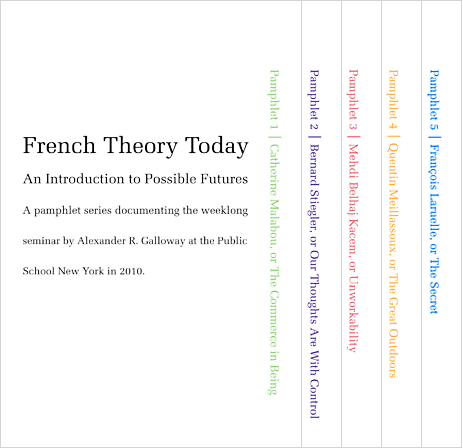Virginia Eubanks: Digital Dead End: Fighting for Social Justice in the Information Age (2011)
Filed under book | Tags: · critique of technology, digital divide, information economy, neoliberalism, participation, technology

The idea that technology will pave the road to prosperity has been promoted through both boom and bust. Today we are told that universal broadband access, high-tech jobs, and cutting-edge science will pull us out of our current economic downturn and move us toward social and economic equality. In Digital Dead End, Virginia Eubanks argues that to believe this is to engage in a kind of magical thinking: a technological utopia will come about simply because we want it to. This vision of the miraculous power of high-tech development is driven by flawed assumptions about race, class, and gender. The realities of the information age are more complicated, particularly for poor and working-class women and families.
Describing her attempts to create technology training programs with a community of resourceful women living at her local YWCA, Eubanks shows that information technology can be both a tool of liberation and a means of oppression. High-tech jobs for women in the YWCA community are data entry positions that pay $7 an hour. At work, their supervisors monitor every keystroke. The state offers limited social service benefits in exchange for high-tech monitoring and surveillance of their lives, families, and communities.
Despite the inequities of the high-tech global economy, optimism and innovation flourished when Eubanks and the women in the YWCA community collaborated to make technology serve social justice. Eubanks describes a new approach to creating a broadly inclusive and empowering “technology for people,” popular technology, which entails shifting the focus from teaching technical skill to nurturing critical technological citizenship, building resources for learning, and fostering social movement.
Publisher MIT Press, 2011
ISBN 026201498X, 9780262014984
266 pages
a lecture by the author (video)
PDF (updated on 2012-9-23)
Comments (2)Peter H. Kahn, Jr: Technological Nature: Adaptation and the Future of Human Life (2011)
Filed under book | Tags: · animal, cognition, engineering, nature, robotics, technology

Our forebears may have had a close connection with the natural world, but increasingly we experience technological nature. Children come of age watching digital nature programs on television. They inhabit virtual lands in digital games. And they play with robotic animals, purchased at big box stores. Until a few years ago, hunters could “telehunt”—shoot and kill animals in Texas from a computer anywhere in the world via a Web interface. Does it matter that much of our experience with nature is mediated and augmented by technology? In Technological Nature, Peter Kahn argues that it does, and shows how it affects our well-being.
Kahn describes his investigations of children’s and adults’ experiences of cutting-edge technological nature.He and his team installed “technological nature windows” (50-inch plasma screens showing high-definition broadcasts of real-time local nature views) in offices on his university campus and assessed the physiological and psychological effects on viewers. He studied children’s and adults’ relationships with the robotic dog AIBO (including possible benefits for children with autism). And he studied online “telegardening” (a pastoral alternative to “telehunting”).
Kahn’s studies show that in terms of human well-being technological nature is better than no nature, but not as good as actual nature. We should develop and use technological nature as a bonus to life, not as its substitute, and reenvision what is beautiful and fulfilling and often essentially wild in our relationship with the natural world.
Publisher MIT Press, 2011
ISBN 0262113228, 9780262113229
230 pages
PDF (updated on 2012-8-1)
Comment (0)Alexander Galloway: French Theory Today: An Introduction to Possible Futures (2011)
Filed under pamphlet | Tags: · non-philosophy, philosophy, theory

“This set of five pamphlets documents a seminar given recently by Alexander R. Galloway at the Public School New York, a self-organizing educational program where class ideas are generated by the public. French Theory Today explores a new generation of French voices—Catherine Malabou, Bernard Stiegler, Mehdi Belhaj Kacem, Quentin Meillassoux, and François Laruelle—whose work has, to varying degrees, only recently emerged in the English-speaking world. Each night of the seminar consisted of a lecture followed by questions from and discussion with class participants. As Galloway suggests in the online class proposal, the goal was ‘not to set in aspic a new canon for French philosophy, but to proceed inductively, tracing some recent experiments and possible futures.'”
Pamphlet 1 | Catherine Malabou, or The Commerce in Being
Pamphlet 2 | Bernard Stiegler, or Our Thoughts are With Control
Pamphlet 3 | Mehdi Belhaj Kacem, or Unworkability
Pamphlet 4 | Quentin Meillassoux, or The Great Outdoors
Pamphlet 5 | François Laruelle, or The Secret
Each pamphlet includes the texts of the lectures, plus transcriptions of the Q&A, as well as special responses and contributions from Nicola Masciandaro, Eugene Thacker, Dominic Pettman, Jackson Moore, Stephen Squibb, Prudence Whittlesey, Taeyoon Choi, and David Horvitz.
Publisher The Public School New York/Erudio Editions, 2011
PDF, PDF (updated on 2021-12-16)
Comment (0)
